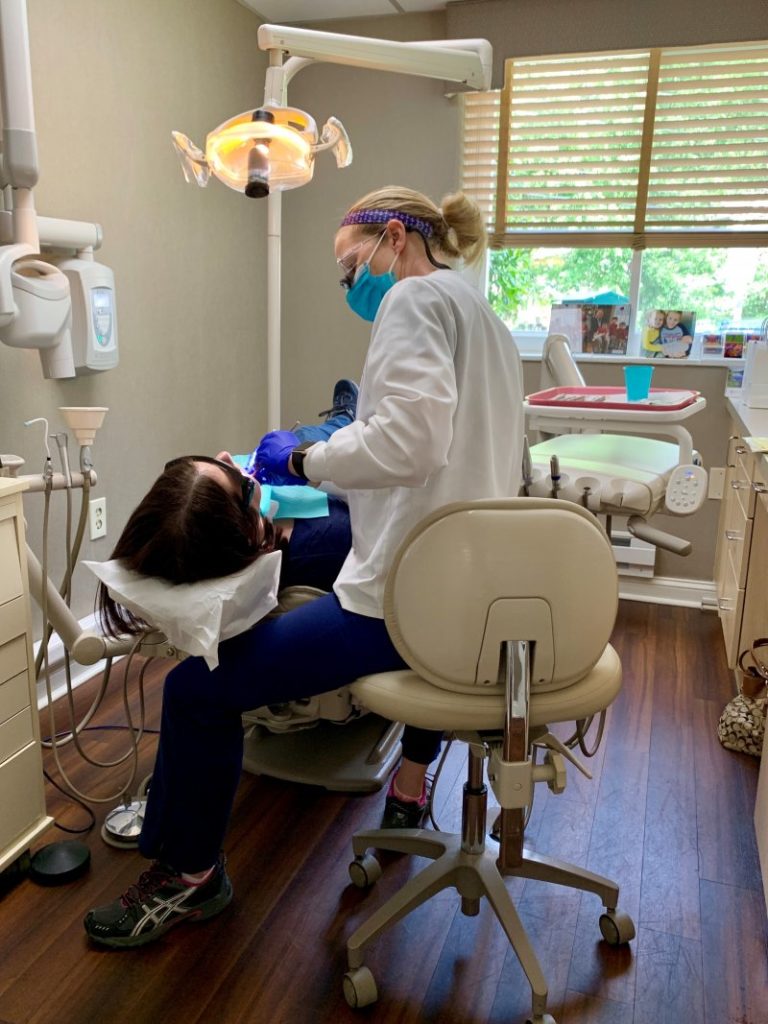
Eating disorders such as bulimia and anorexia affect millions of people throughout the United States. Not only can the consequences become evident throughout the body, but problems can also begin to manifest within a person’s mouth. If you or a loved one are struggling but are unsure where to turn for help, this article will explain what signs to look for should you believe there is a problem and what your dentist can do to minimize the damage to your smile.
The Link Between Eating Disorders and Your Smile
Among the various related eating disorders, the three most common include anorexia, bulimia, and binge-eating. When you think about the process for each of these disorders, you can begin to see why the mouth is severely impacted.
Bulimia causes many individuals to purge (vomit), resulting in stomach acids rising into the oral cavity. Anorexia causes a person to avoid foods that provide the nutrients the body needs to function properly and better protect teeth and gums. Binge-eating results in someone compulsively consuming food that can leave bacteria and harmful particles on the teeth for prolonged periods.
Over time, a person may notice symptoms occurring throughout the mouth that are a direct result of their eating disorder, such as:
- Worn tooth enamel
- Tooth sensitivity
- Dry mouth
- Frequent cavities
- Cracked lips
- Difficulty swallowing
Also, an individual who suffers from an eating disorder may be at a greater risk for developing bad breath, canker sores, bone loss, or bleeding/swollen gums.
What a Dentist Can Do to Help
Suffering from any of these disorders will take time to overcome, but a dentist can help to move the process along by offering valuable tips, advice, and services to improve a person’s oral health. Apart from the individual receiving strict instructions to maintain optimal oral hygiene at home (brushing, flossing, and rinsing), a dentist will also likely:
- Recommend immediately rinsing out the mouth after purging. Although the emphasis should be on improving the individual’s whole situation, eating disorders are not likely to be cured overnight, so appropriate steps can be taken to better protect teeth and gums in the meantime.
- Instruct the patient to avoid brushing immediately after purging to prevent stomach acids from being spread and pushed into the tooth enamel.
- Recommend a fluoride rinse to re-mineralize worn tooth enamel or desensitize teeth.
- Instruct patients to drink water to avoid dehydration and prevent dry mouth.
- Instruct the individual to keep an open line of communication with their dental team to ensure the best possible outcomes are being reached while undergoing treatment.
If you are suffering from an eating disorder, remember that your dentist is your ally. Not only will your situation remain confidential, but they’ll provide effective tips to help you avoid serious oral health problems while working to improve your overall well-being.
About the McCarl Dental Group
The four dental professionals at The McCarl Dental Group are skilled in providing patients with the most accurate, precise, and efficient solutions to maintain healthy smiles. Individuals who visit our office can rely on our team to keep information confidential, ensuring only you receive the best possible care no matter the health-related situation you’re facing. If you’re suffering from an eating disorder or any other similar condition, call our dental office today.
